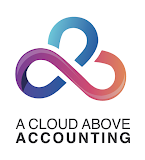Running a small business involves managing many tasks, each requiring careful attention, strategic planning, and efficient resource management. Bookkeeping is often one of the most important things that small business owners have to do as your business’s financial health depends on its ability to keep accurate records of all of its transactions. Small business bookkeeping helps you stay organized, comply with tax laws, and understand your finances. Here are ten essential bookkeeping strategies to help your small business stay financially stable and organized.

1. Importance Of Keeping Accurate Records
Accurate record-keeping is the foundation for successful bookkeeping. It means keeping accurate records of all financial activities, such as sales, expenses, and payments. This is an important habit for many reasons:
- Tax Purposes: Maintaining accurate records will help you provide the required proof during tax season, lowering the likelihood of audits and fines.
- Financial Decision-Making: If you keep detailed financial records, you can evaluate your business’s performance, identify patterns, and make educated decisions.
- Legal Compliance: Keeping thorough records ensures your financial information is current, helping you avoid common legal issues.
2. Use Accounting Software
Investing in accounting software can significantly streamline your bookkeeping process. Here’s how it helps:
- Streamlining Processes: Bookkeeping software automates invoicing, expense monitoring, and financial reporting, saving time and reducing errors.
- Real-Time Data: Cloud accounting services give you real-time financial insights into your business’s health.
- Integration: Accounting software connects with payroll and CRM systems for a seamless workflow.
QuickBooks, Xero, and FreshBooks are popular accounting software with business-specific capabilities. Good accounting software simplifies bookkeeping so you can focus on building your business.
3. Separate Business And Personal Expenses
Mixing personal and business expenses can lead to confusion, financial errors, and legal issues. Here’s why keeping them separate is beneficial:
- Clarity: Separating expenses guarantees you have a clear understanding of your business’s financial situation.
- Tax Deductions: Mixing expenses can cause you to miss out on potential tax deductions or, worse, claim deductions incorrectly, which can trigger audits.
- Legal Protection: Keeping personal and business finances separate can provide a layer of legal protection by maintaining the integrity of your business as a distinct entity.
Simply open a separate bank account for your business and use a business credit card for all of your business-related purchases. This practice simplifies your bookkeeping and financial management.
4. Keep Track Of All Transactions
Tracking every financial transaction, no matter how small, is crucial for accurate records. Here’s how to stay on top of this:
- Daily Recording: Make it a habit to record transactions daily. This prevents backlog and makes sure your records are always current.
- Receipt Management: Keep digital or physical copies of all receipts. Many accounting software solutions offer features for uploading and categorizing receipts.
- Consistency: Consistent record-keeping helps you find problems early and makes it easier to manage your finances.
5. Set Up A Budget
A budget is a great way to keep track of your business’s finances. It helps you monitor expenses, manage cash flow, and plan for future growth. Here’s why it’s helpful:
- Expense Management: A budget helps you monitor and control your spending, making sure you don’t overspend in any area.
- Cash Flow: By forecasting your income and expenses, you can better manage your cash flow and avoid liquidity issues.
- Goal Setting: A budget allows you to set financial goals and measure your progress towards achieving them.
Before you create a budget, review past financial data to identify trends and make accurate projections. Regularly review and adjust your budget as needed.

6. Stay On Top Of Invoicing And Payments
Timely invoicing and diligent follow-up on payments are crucial for maintaining steady cash flow. Here are some tips:
- Prompt Invoicing: Send invoices as soon as a job is completed or a sale is made. The quicker you invoice, the sooner you can receive payment.
- Payment Terms: Clearly state payment terms on your invoices, including due dates, late fees, and accepted payment methods.
- Follow-Up: Regularly review outstanding invoices and follow up with clients who are past due. Friendly reminders can prompt timely payments and improve your cash flow.
Using accounting software to automate invoicing can streamline this process, making sure you never miss sending an invoice or following up on a payment.
7. Reconcile Accounts Regularly
Reconciling your accounts involves comparing your financial records with bank statements to ensure they match. Here’s why regular reconciliation is important:
- Accuracy: Reconciliation guarantees your financial records are accurate and complete.
- Fraud Detection: Regularly checking your accounts helps you spot any fraudulent activity quickly.
- Financial Health: Accurate records provide a true picture of your financial health, allowing for better decision-making.
8. Save And Organize Receipts
Keeping track of all receipts is essential for accurate record-keeping and tax compliance. Here are some tips:
- Digital Storage: Use digital tools to scan and store receipts electronically. Many accounting software solutions offer receipt management features.
- Categorization: Organize receipts by category (e.g., travel, supplies, utilities) to make it easier to track expenses and find specific receipts when needed.
- Retention: Keep receipts for at least three years, as the IRS recommends, in case of an audit.
Organized receipts not only help with bookkeeping but also makes sure you can claim all eligible expenses on your taxes.
9. Seek Professional Help If Needed
Small business bookkeeping can be overwhelming, especially if you’re managing multiple responsibilities. Don’t hesitate to seek professional help. Here’s why it might be beneficial:
- Expertise: Professional bookkeepers or accountants have the expertise to manage your finances accurately and efficiently.
- Time-Saving: Outsourcing bookkeeping tasks frees up your time to focus on running and growing your business.
- Peace of Mind: Knowing that your financial records are in expert hands can reduce stress and give you confidence in your financial management.
It’s easy for small business owners to keep their financial records accurate and in order with the help of cloud bookkeeping services, bookkeeping catch up services, and bookkeeping cleanup services.
10. Use Cloud Accounting Services
Incorporating cloud accounting services can give you a lot of benefits, such as:
- Accessibility: Access your financial data from anywhere, at any time, using any device with internet access.
- Collaboration: Cloud-based solutions make it easy to collaborate with your accountant or bookkeeper in real-time.
- Security: Trustworthy cloud accounting services protect your financial information with strong security measures.
Using cloud accounting services can enhance your bookkeeping’s efficiency and security.
Basic Small Business Bookkeeping
Essentially, bookkeeping involves recording and tracking all business financial transactions. Among these are:
- Recording sales and revenue from products or services
- Tracking expenses like supplies, utilities, rent, payroll, etc.
- Monitoring accounts payable and accounts receivable
- Managing payroll and employee expenses like benefits and reimbursements
- Reconciling bank and credit card statements against your records
A Cloud Above Accounting is here to help you achieve your bookkeeping goals. We offer tailored cloud accounting and financial services for small businesses. Our skilled bookkeepers can improve accuracy, streamline operations, and provide valuable financial insights. Join our Facebook Group for more useful tips or contact us today.
FAQs
Accurate record-keeping is essential for tax compliance, financial decision-making, and legal protection.
Separating expenses provides financial clarity, ensures accurate tax deductions, and protects your business legally.
Include projected income, fixed and variable expenses, and financial goals in your budget to manage cash flow effectively.
Yes, it’s necessary to record every transaction, no matter how small, to ensure accurate financial records and potential tax deductions.



